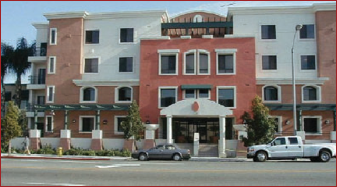For Arlington’s Nov 2020 Special Town Meeting, my colleague Ben Rudick filed the following warrant article:
This is the second in a series of “Arlington 2020” articles. The first article looked at the number of one-, two-, and three-family homes and condominiums in Arlington, and how that housing stock has changed over time. This article will examine changes in the value of those properties. We’re going to look at “value” through the lens of property assessments, so we should start with an explanation of what property assessments are and how they’re used.
During the last few months, Arlington’s Department of Planning and Community Development and Zoning Bylaw Working Group have been conducting a study of the town’s industrial districts. The general idea has been to begin with an assessment of current conditions, and consider whether there are zoning changes that might make these districts more beneficial to the community as a whole.
Dave Weinstock, an Arlington resident interested in affordable housing wondered about the concept of “developer math”. The math involved in planning an affordable housing projects is a problem that needs to get solved in order to have anything built here in Arlington, or anywhere. This topic comes up frequently in community discussions about the need for more housing.
Restrictive covenants are a “list of obligations that purchasers of property must assume … For the first half of the 20th century, one commonplace commitment was a promise never to sell or rent to an African American”. [1] These covenants gained popularity after the Supreme Court’s 1917 decision in Buchanan v. Warley.
I’ve had an annual ritual for the past several years: obtain a spreadsheet of property assessments from the Town Assessor, load them in to a database, and run a series of R computations against the data. I started doing this for a number of reasons: to understand what was built where (our zoning laws have changed over time, and there are numerous non-conforming uses), the relationship between land and building values, the capital costs of different types of housing, and how these factors have changed over time.
Two weeks ago, I helped to organize a precinct meeting for residents and town meeting members. During the meeting, we got into a discussion about public open spaces, how the town funds their upkeep, and whether having more commercial tax revenue might provide additional funding for parks and recreation.
This timely report on the question of affordable housing vs. density comes from the California Dept. of Housing & Community Development and mirrors the situation in the region surrounding Arlington MA.
Interview with Aaron Clausen, AICP; City of Beverly, Director, Planning and Community Development
This letter appeared in the Boston Globe on Dec. 19th. It’s reprinted
here with permission from the author, Eugene Benson.
